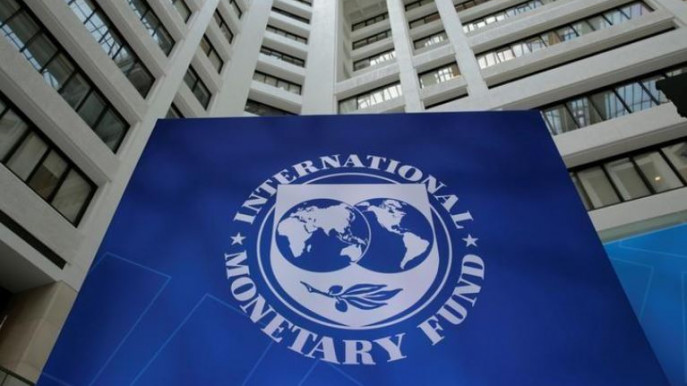
IMF approves $732m to Bangladesh to address Covid-19 pandemic

The International Monetary Fund (IMF) has approved a disbursement of about $732 million to Bangladesh for addressing the challenges posed by Covid-19 pandemic.
The Executive Board of the IMF approved $244 million under the Rapid Credit Facility (RCF) and about $488 million under the Rapid Financing Instrument (RFI) to the country on May 29 in a response to the 60th request for emergency financial assistance to help its member countries.
The allocation will help finance the health, social protection and macroeconomic stabilization measures, meet the urgent balance-of-payments and fiscal needs arising from the Covid-19 outbreak.
It will also catalyze additional support from the international community.
The IMF continues to monitor Bangladesh's situation closely and stands ready to provide further advice and support if needed. The authorities have also committed to put in place targeted transparency and accountability measures to ensure the appropriate use of emergency financing.
Following the Executive Board's discussion on Bangladesh, Antoinette Sayeh, deputy managing director and acting chair, issued the following statement:
"The outbreak of COVID-19 is severely affecting the two main sources of Bangladesh's external earnings, exports of ready-made garments and remittances. Together with the measures to contain the spread of the virus in the country, the outbreak is expected to result in a significant slowdown of economic growth and the emergence of fiscal and balance of payments needs. The IMF's emergency financial assistance will help cover the financing gap and support the authorities' effort to contain the adverse impact of the outbreak and catalyze additional support from the international community.
"The authorities have responded quickly to the COVID-19 outbreak with a comprehensive set of measures aimed at containing the spread of the pandemic, providing immediate relief to the most vulnerable households and affected businesses, and preserving the country's macroeconomic prospects. A temporary increase in the fiscal deficit is necessary, and it will be important to ensure transparency and accountability in the use of all emergency spending.
"The Bangladesh Bank took appropriate steps to ease liquidity conditions and allow the financial sector to support the economy. Further easing could be considered if the economic situation deteriorates and inflation remains moderate. A gradual increase in exchange rate flexibility should be allowed to adjust to the external shock while preserving foreign reserves.
"Once the crisis abates, the authorities are committed to re-focus on addressing banking sector problems, including nonperforming loans and the poor performance of the state-owned commercial banks. They are also committed to ensuring fiscal discipline and debt sustainability by broadening the tax base and strengthening tax administration and compliance."
Editor & Publisher: S. M. Mesbah Uddin
Published by the Editor from House-45,
Road-3, Section-12, Pallabi, Mirpur
Dhaka-1216, Bangladesh
Call: +01713180024 & 0167 538 3357
News & Commercial Office :
Phone: 096 9612 7234 & 096 1175 5298
e-mail: [email protected]
HAC & Marketing (Advertisement)
Call: 01616 521 297
e-mail: [email protected]